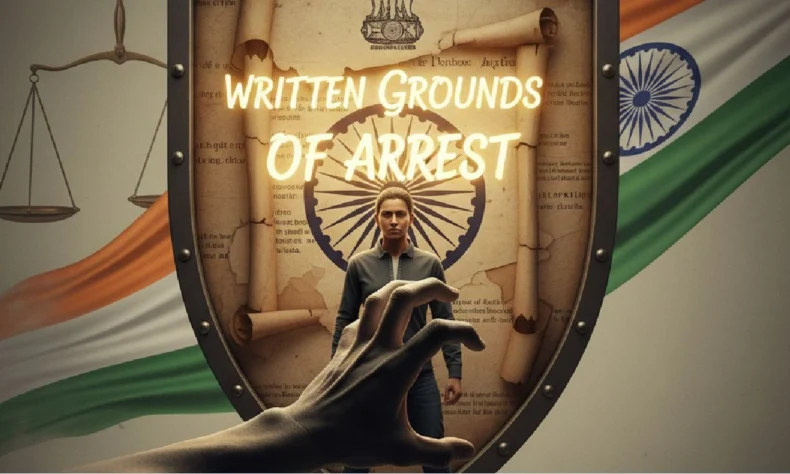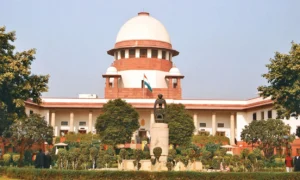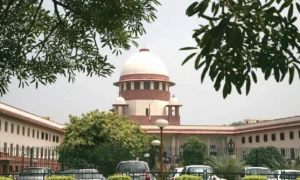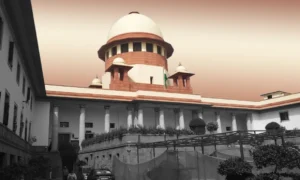
By Binny Yadav
When the framers of the Constitution inscribed the words: “We, the People of India…” in the Preamble, they were not drafting a preface—they were issuing a solemn declaration: every exercise of State power would be answerable to reason, law, and fairness. Liberty was never meant to be the privilege of the powerful; it was to be the inheritance of every citizen.
It is this constitutional soul that the Supreme Court has invoked and reaffirmed in its recent ruling in Mihir Rajesh Shah vs State of Maharashtra & Anr (November 6, 2025). The Court extended the requirement of providing written grounds of arrest to all offences under the Indian Penal Code (IPC) and the Bharatiya Nyaya Sanhita (BNS)—not merely those under special statutes like the Prevention of Money Laundering Act (PMLA) or the Unlawful Activities (Prevention) Act (UAPA).
This judgment is not a mere procedural clarification—it is a constitutional pronouncement that reinforces a citizen’s right to know, right to equality, and right to liberty. By holding that failure to furnish written grounds of arrest in a language understood by the arrestee renders both the arrest and subsequent remand illegal, the Court has transformed due process from an abstract principle into a lived protection.
CONSTITUTIONAL PROMISE RECLAIMED
The judgment draws from the bedrock principles of Justice, Liberty, Equality, and Fraternity—the living pulse of Articles 14, 19, 21, and 22. Together, they form the “Golden Triangle” of rights, ensuring that State power is always bound by law.
Article 22(1) mandates that “no person who is arrested shall be detained without being informed, as soon as may be, of the grounds for such arrest.” The Supreme Court has now read this as a written and comprehensible communication, elevating a procedural safeguard into a substantive constitutional right. Oral communication, it held, would suffice only in rare circumstances—such as an offence committed in the presence of a police officer—and even then, written compliance must follow swiftly. This interpretation ensures that liberty is not lost in the gap between law and practice.
JUDGMENT AS THE GREAT LEVELLER
By broadening this safeguard to every citizen, the Court has restored parity under Article 14. Previously, only those arrested under special laws like the PMLA or UAPA enjoyed the Supreme Court’s precedent in Pankaj Bansal vs Union of India (2023).
The Mihir Shah ruling removes this anomaly and affirms that procedural equality is as vital as substantive equality. The right to be informed of the reasons for one’s arrest cannot depend on the statute invoked. By extending this protection universally, the Court has declared that the Constitution recognizes no hierarchy between the ordinary and the exceptional, between the powerful and the powerless.
A STEP FORWARD IN THE EVOLUTION OF ARTICLE 21
Article 21 has long been the crucible of constitutional growth—from AK Gopalan vs State of Madras (1950) to Maneka Gandhi vs Union of India (1978), where “procedure established by law” came to mean a process that is just, fair, and reasonable.
The Mihir Shah verdict situates itself firmly in this continuum. It declares that liberty cannot be suspended by vague or unrecorded reasons. Insisting that the written grounds be in a language understood by the arrestee anchors legality in human dignity—the moral core of Article 21.
WHY THIS JUDGMENT MATTERS
Though the case arose from a high-profile Mumbai hit-and-run, the Supreme Court resisted the temptation to let the accused’s notoriety eclipse constitutional norms. The Bombay High Court had earlier acknowledged procedural lapses, but upheld the arrest, citing the seriousness of the offence.
The Supreme Court, however, held firm: liberty cannot be forfeited to convenience. The legality of an arrest cannot depend on public sentiment or police expediency. By declaring that arrests made without written grounds are void, the Court has fortified judicial oversight over police conduct and reinforced that due process is the first
condition of justice—even when the accused stands unpopular before the court of public opinion.
MEDIA, PUBLIC, AND THE TRANSPARENCY PRINCIPLE
In an era of 24-hour media glare, where accusation often precedes evidence, the requirement of written arrest grounds ensures that truth has a documentary anchor. It enables both judiciary and public to assess whether the State acts out of law or impulse.
This transparency aligns with the right to information, extending democratic accountability into the realm of criminal justice. For the media, it provides a verifiable basis for responsible reporting—balancing the public’s right to know with the individual’s right to fairness.
By mandating written grounds of arrest in all cases, the Supreme Court has deepened the procedural dimension of liberty and equality. Democracy, it reminds us, survives not by the might of institutions, but by the moral discipline of legality.
As Justice Krishna Iyer once observed: “The guarantee of procedure is the shield of liberty.” The Mihir Shah judgment ensures that this shield is now made of words written in law, not promises spoken in haste.
—The writer is a New Delhi-based journalist, lawyer and trained mediator
📰 Crime Today News is proudly sponsored by DRYFRUIT & CO – A Brand by eFabby Global LLC
Design & Developed by Yes Mom Hosting






